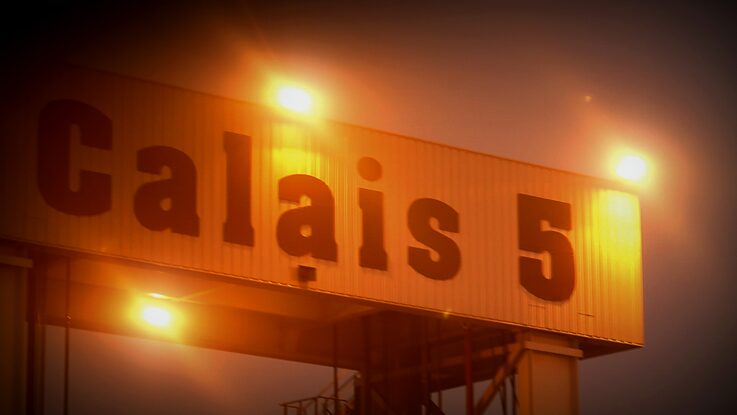JANUARY 2017
Michaela Crimmin
Michaela Crimmin, founder and co-director of Culture+Conflict, ‘a not-for-profit agency focusing on art produced in, or in response to, conflict and post-conflict situations across the world’ answers questions asked by Alessandra Cianetti: What are the conflicts and art practices you have been focusing on lately? As curator, academic and director, how do you think the notion of border has been changing in our contemporary world?
"International conflict itself, and especially now, has no borders. Try and pinpoint a beginning or end to a particular conflict present or past, and you soon are thrown across time and space. Allegiances shift as much now as they did in the World Wars. In acknowledgement of these realities and in the interest of neither corralling artists nor simplifying the subject of war, Conflict+Culture has preferred to intersect with places, themes, and questions that address the subject of conflict from many points of entry..."
Read the interview here
#PromisedLand
AUTHOR
 Photo: © Michaela Crimmin | Culture+Conflict
Michaela Crimmin is a co-director of Culture+Conflict. She is also an independent curator and writer; and is on the academic staff of the Royal College of Art (RCA) where she teaches in the School of Humanities and has been leading a research programme, funded by the Arts and Humanities Research Council, to build connections between academia, artists and curators, and activists working on the role of art in the context of conflict. She lectures nationally and internationally. She was Head of Arts at the Royal Society of Arts (RSA) from 1997 to 2010, a role that included initiating and directing the RSA Arts & Ecology Centre, the inspiration and experience that led to co-founding Culture+Conflict. Previous work includes coordinating the first phase of the Fourth Plinth series of temporary commissions in Londons Trafalgar Square; directing the two million pound Art for Architecture award scheme; and commissioning artists for Public Art Development Trusts pioneering work in the public domain.
Photo: © Michaela Crimmin | Culture+Conflict
Michaela Crimmin is a co-director of Culture+Conflict. She is also an independent curator and writer; and is on the academic staff of the Royal College of Art (RCA) where she teaches in the School of Humanities and has been leading a research programme, funded by the Arts and Humanities Research Council, to build connections between academia, artists and curators, and activists working on the role of art in the context of conflict. She lectures nationally and internationally. She was Head of Arts at the Royal Society of Arts (RSA) from 1997 to 2010, a role that included initiating and directing the RSA Arts & Ecology Centre, the inspiration and experience that led to co-founding Culture+Conflict. Previous work includes coordinating the first phase of the Fourth Plinth series of temporary commissions in Londons Trafalgar Square; directing the two million pound Art for Architecture award scheme; and commissioning artists for Public Art Development Trusts pioneering work in the public domain.
Source: www.cultureandconflict.org.uk @ConflictCulture
 Photo: © Michaela Crimmin | Culture+Conflict
Michaela Crimmin is a co-director of Culture+Conflict. She is also an independent curator and writer; and is on the academic staff of the Royal College of Art (RCA) where she teaches in the School of Humanities and has been leading a research programme, funded by the Arts and Humanities Research Council, to build connections between academia, artists and curators, and activists working on the role of art in the context of conflict. She lectures nationally and internationally. She was Head of Arts at the Royal Society of Arts (RSA) from 1997 to 2010, a role that included initiating and directing the RSA Arts & Ecology Centre, the inspiration and experience that led to co-founding Culture+Conflict. Previous work includes coordinating the first phase of the Fourth Plinth series of temporary commissions in Londons Trafalgar Square; directing the two million pound Art for Architecture award scheme; and commissioning artists for Public Art Development Trusts pioneering work in the public domain.
Photo: © Michaela Crimmin | Culture+Conflict
Michaela Crimmin is a co-director of Culture+Conflict. She is also an independent curator and writer; and is on the academic staff of the Royal College of Art (RCA) where she teaches in the School of Humanities and has been leading a research programme, funded by the Arts and Humanities Research Council, to build connections between academia, artists and curators, and activists working on the role of art in the context of conflict. She lectures nationally and internationally. She was Head of Arts at the Royal Society of Arts (RSA) from 1997 to 2010, a role that included initiating and directing the RSA Arts & Ecology Centre, the inspiration and experience that led to co-founding Culture+Conflict. Previous work includes coordinating the first phase of the Fourth Plinth series of temporary commissions in Londons Trafalgar Square; directing the two million pound Art for Architecture award scheme; and commissioning artists for Public Art Development Trusts pioneering work in the public domain.Source: www.cultureandconflict.org.uk @ConflictCulture
